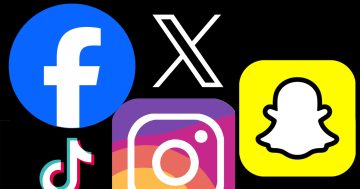Sergiu Gatlan* finds newly released court documents that show Facebook has been caught red-handed taking money from children without their parents’ consent.

Photo: Hal Gatewood
According to court documents that were part of a 2012 class-action lawsuit made public by a US Federal Court Judge at the request of the Center for Investigative Reporting’s Reveal site, social network giant Facebook has made a habit of charging kids without their parents’ knowledge while playing games on its platform.
This happened because, unlike other platforms such as Apple’s iOS, Facebook does not require its users to re-authenticate every time they want to purchase in-game goods such as virtual currency.
Although right now only four documents have been made partially available for analysis to Reveal by the Court, Facebook has been ordered to also release to the public roughly 100 more pages of information pertaining to the class action.
Facebook seeing children as ‘whales’
Notwithstanding the limited information Reveal was able to examine so far, it is quite clear the parents who are part of the class action against Facebook, as well as the company’s employees, are dismayed at the social media giant’s choice of continuing to charge children after an initial purchase approved by their parents.
The lead plaintiff in the case was a child who used his mother’s credit card to pay $20 while playing a game on Facebook.
The child, referred to as “IB” in the case, did not know the social media giant had stored his mother’s payment information.
As he continued to play the game, Ninja Saga, Facebook continued to charge his mum’s credit card, racking up several hundred dollars in just a few weeks.
As a previous ruling of US District Court Judge Beth Freeman says, the child “believed these purchases were being made with virtual currency, and that his mother’s credit card was not being charged for these purchases”.
After the child’s mother decided to ask for a refund seeing that she only approved the first $20 charge, Facebook refused to oblige, and the kid’s family was forced to join other disgruntled parents who went through the same experience in a class action lawsuit.
Furthermore, as detailed in an internal Facebook document published by Reveal: “In nearly all cases the parents knew their child was playing Angry Birds, but didn’t think the child would be allowed to buy anything without their password or authorisation first.”
The story gets even more jaw-dropping seeing that some employees were comparing children playing games on Facebook’s platform to big casino spenders.
In one of the unsealed documents, two Facebook employees deny a refund request from a child whom they refer to as a “whale” — a term coined by the casino industry to describe profligate spenders.
The child had entered a credit card number to play a game, and in about two weeks racked up thousands of dollars in charges, according to an excerpt of messages between two employees at the social media giant.
The only response Facebook had regarding this situation was a dry one-sentence answer stating that: “We appreciate the court’s careful review of these materials.”
Not the first time Facebook finds itself in hot water
This is not the first time Facebook has had to deal with accusations of inappropriate business practices when dealing with its young users.
The Campaign for a Commercial-Free Childhood (CCFC) together with 17 other organisations filed a complaint with the US Federal Trade Commission (FTC) accusing the social media giant of breaking the Children’s Online Privacy Protection Act (COPPA).
The complaint argued that, at the time, Facebook’s Messenger Kids app was illegally collecting children’s info although parental consent was not given as required by COPPA’s provisions.
Moreover, as stated in the FTC complaint, the Messenger Kids’ privacy policy was also designed to be incomplete and as vague as possible and, thus, not in accordance with COPPA’s terms.
On top of the FTC complaint, the CCFC organisation also sprang a petition seeking support from parents who want Facebook to close down the Messenger Kids platform altogether.
Furthermore, as described by the CCFC, Facebook’s CEO, Mark Zuckerberg was also sent a letter endorsed by over 100 advocates and experts on 30 January 2018 that asked him to put a hold on the Messenger Kids app undermining children’s healthy development.
The 2017 Children and Parents: Media Use and Attitudes Report from Ofcom, the UK’s regulator for communications services, which examined children’s media literacy, showed that “46 per cent of 11-year-olds, 51 per cent of 12-year-olds and 28 per cent of 10-year-olds now have a social media profile”, as reported by the BBC.
* Sergiu Gatlan writes security and tech news for Bleeping Computer. He tweets at @serghei.
This article first appeared at www.bleepingcomputer.com.











